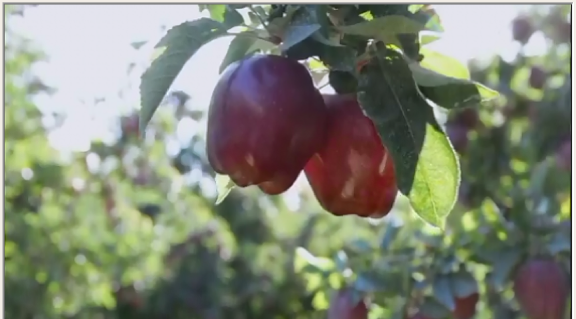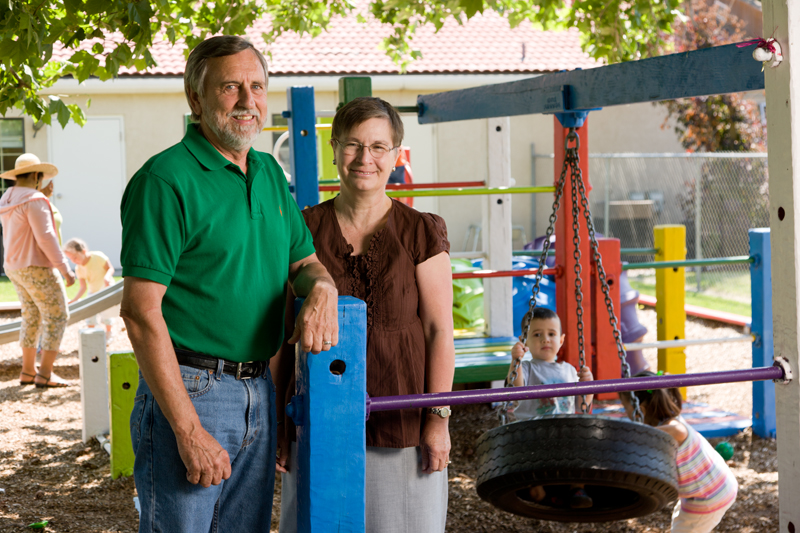A closer look at companies executing leadership excellence
 Ralph Broetje grew up on a small farm in Yakima, Washington, tending chickens and caring for the family orchard. When he was 15, he heard a missionary from India speak about the suffering of children in his country. Something sparked in Ralph that day — a dream to have his own orchard and help children in India. Like many teenage dreams, it faded. But after lying dormant for over 20 years, it began to take root.
Ralph Broetje grew up on a small farm in Yakima, Washington, tending chickens and caring for the family orchard. When he was 15, he heard a missionary from India speak about the suffering of children in his country. Something sparked in Ralph that day — a dream to have his own orchard and help children in India. Like many teenage dreams, it faded. But after lying dormant for over 20 years, it began to take root.
Ralph married Cheryl Shelton in 1967, and over the next 20 years, the couple struggled against winter freezes, pounding rainstorms, and fruit fly infestations. But by 1987, they had paid off their bank note, and owned about 900 acres along the Snake River.
 It was about this time that couple’s focus began to shift. Until 1979, fruits were picked by migrant families in the United States who followed crops around the country. But, the Iran oil embargo drove gasoline prices so high that the workers could no longer afford to drive from state to state.
It was about this time that couple’s focus began to shift. Until 1979, fruits were picked by migrant families in the United States who followed crops around the country. But, the Iran oil embargo drove gasoline prices so high that the workers could no longer afford to drive from state to state.
In their place, young male Latinos began to show up. Amid a storm of fear that Latinos were taking jobs from U.S. citizens, the Broetje’s travelled to Mexico to learn more about their workforce. That trip forever changed the couple’s image of the employer/employee relationship as well their definition of success. They saw families living on garbage dumps and in boxes the size of a washer or dryer. They discovered generations with no education, no training, insufficient money, and no hope of breaking the cycle.
 When the couple returned home, Ralph’s childhood vision of using his orchard to help others was reborn. Despite negative public sentiment about immigrants, the couple began to dig further. They learned that their workers’ children were being locked in rental dwellings and storage sheds, or left alone in cars all day. Many were taken out of school to care for their younger brothers and sisters. The Broetjes took action, and built New Horizon Preschool Center in 1988 to help educate and care for the children. Part of the school’s staff were Latino women. This gave the children a safe and nurturing environment, and the women the ability to start to break the cycle.
When the couple returned home, Ralph’s childhood vision of using his orchard to help others was reborn. Despite negative public sentiment about immigrants, the couple began to dig further. They learned that their workers’ children were being locked in rental dwellings and storage sheds, or left alone in cars all day. Many were taken out of school to care for their younger brothers and sisters. The Broetjes took action, and built New Horizon Preschool Center in 1988 to help educate and care for the children. Part of the school’s staff were Latino women. This gave the children a safe and nurturing environment, and the women the ability to start to break the cycle.
That marked the beginning of how the couple partnered with their workers to create a community-based business model. Next, the Broetje’s invested $5 million to build Vista Hermosa in 1990. The community consists of 121 rental houses, an elementary school, library, chapel, laundry facility and convenience store.
Today, Broetje’s Orchards has grown to around 6,000 acres yielding $80 million in business. Through the company’s non-profit arm, Vista Hermosa Foundation, more than $50 million has been donated to local and international organizations — including ones that nurture children in India.
